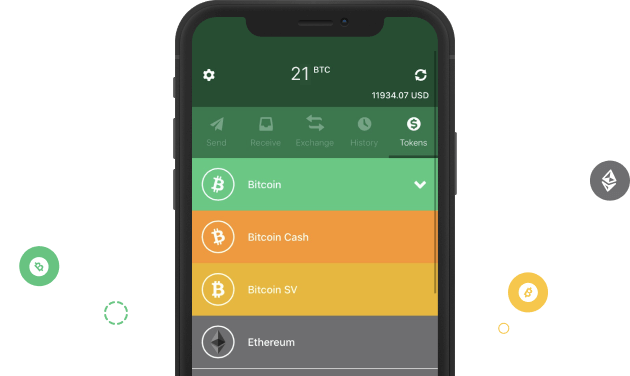The following is a contributed article from a content partner of Benzinga
As a beginner looking to store your cryptocurrencies, you may have already noticed that there are more than a few cryptocurrency wallet options — all promising to do something better than the rest.
But how do you identify the wallets that genuinely offer the feature you want or need? Well, by using our handy checklist of course! If your cryptocurrency wallet offers all the features listed below, you’ve got yourself a keeper!
Hardware-grade Security
As a cryptocurrency holder, you benefit from the advantages that blockchain technology enables — such as incredible efficiency, self-sovereignty of your money, and the underlying appreciation of your cryptocurrency portfolio.
But as opposed to using a bank, you are the custodian of your own funds, this means you are wholly responsible for ensuring your portfolio remains safe — this is the job of your cryptocurrency wallet.
However, not all cryptocurrency wallets are created equal in this reward. In general, you should expect — at the very least — password protection and access to your private keys and recovery phrase. But beyond this, the gold standard in cryptocurrency security is hardware-based security.
Now, there are a wide variety of standalone hardware wallets, like the Ledger Nano X and Trezor Model T — but these can run between $100 to $200 each and aren’t the most beginner-friendly so are best reserved for those with a large portfolio.
But there are far more accessible solutions now available — arguably the most attractive of which is Coin Wallet’s offering. Right now, Coin Wallet is the only cross-platform cryptocurrency wallet with FIDO U2F support. This means it’s compatible with a wide range of security keys, including the Yubikey and Trustkey — which can add hardware grade security to your Coin Wallet for just $20 to $50.
Multi-asset Support
As of March 2021, there are well over 6,000 different cryptocurrencies in existence. Though only a small fraction of these are worth paying attention to, the immense variety that exists in the industry can make it difficult for beginners to securely and efficiently manage multiple cryptocurrencies at once.
Until relatively recently, users would need to create and manage a separate wallet for each cryptocurrency they’d like to hold — requiring a learning curve each time. The only alternative was to store their cryptocurrencies on an exchange platform — sacrificing the accessibility and security of their funds as a result.
Fortunately, things have come a long way in the last few years, and there are now a variety of cryptocurrency wallets that feature native support for dozens of the most popular cryptocurrencies. As such, they represent an easy entry route to managing a more diverse cryptocurrency portfolio, since they can all be managed from one place through a unified user interface.
Some of the most popular multi-asset wallets currently include:
-
Exodus wallet: Supports over 100 different cryptocurrencies.
-
Coin wallet: Supports 10 of the most popular cryptocurrencies and thousands of ERC-20 tokens.
-
BRD wallet: Supports over 100 cryptocurrencies, including most popular assets.
Adjustable Fees
Though cryptocurrencies are generally associated with their profitability and efficiency, they’re generally not entirely free to use.
When transacting with most popular cryptocurrencies — including Bitcoin (BTC), ether (ETH), Cardano (ADA), and more, you’re going to need to pay a variable transaction fee, which generally relates to how congested the network is at the time, and how quickly you want it to be finalized.
Although this fee can vary considerably, not all wallets are able to either dynamically adjust the fee based on current network conditions, or give you the option to manually set the fee you want to use. This poses two problems: for one, you might end up overpaying on fees — which can be an extremely expensive mistake during peak times. And secondly, you might end up underpaying, which can result in delayed or rejected transactions — wasting time and money.
https://twitter.com/defi_dad/status/1358812674763730946
The alternative is simple: use a wallet that gives you control over the fee you use. It sounds simple enough, but it’s actually a surprisingly uncommon feature — particularly among multi-asset wallets, many of which omit this feature entirely. But fortunately, both Coin Wallet and Exodus are among the exceptions, since they both provide a great deal of control over the fees you use.
Beyond this, your best bet is using a full node wallet if you want to control your spending on fees — since these almost always give you full control over your transaction costs.
© 2025 Benzinga.com. Benzinga does not provide investment advice. All rights reserved.
Trade confidently with insights and alerts from analyst ratings, free reports and breaking news that affects the stocks you care about.
